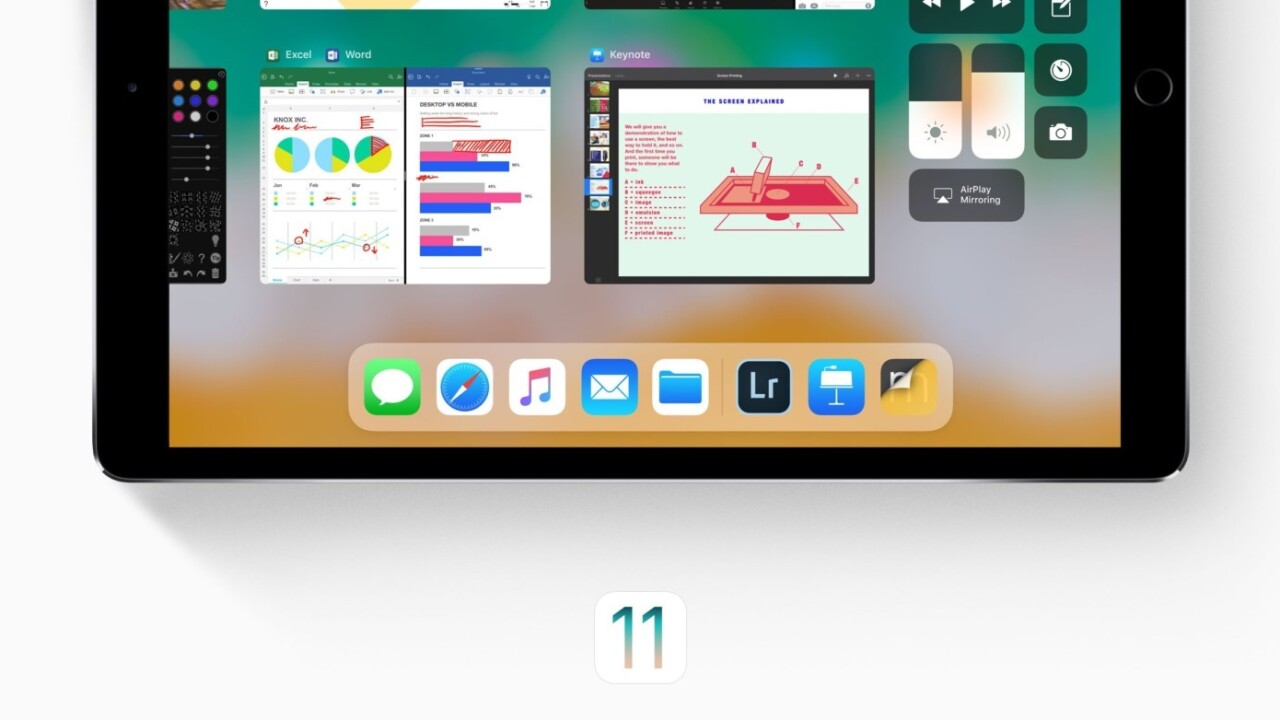
iOS 11 is one of the biggest updates to Apple’s mobile OS yet, especially for iPad users. Now that it’s available in a public beta, here’s our rundown of the best features so you can decide for yourself whether to install. Spoiler alert: you probably should.
Apple Pay takes on Venmo and Facebook
Apple Pay now allows you to make person-to-person payments, for one. It’s integrated directly into iMessage, which should make it seamless to send money to your iPhone-toting friends.
Though Venmo is likely the most popular money-transfer service in the US, Apple Pay’s new feature akin to Facebook Messenger, which lets you send money right within a chat. Unlike Facebook, however, transferred money is stored in a new Apple Pay Cash account by default. You can then use those funds to make purchases on the Web or using your Apple devices, or just transfer it to your bank.
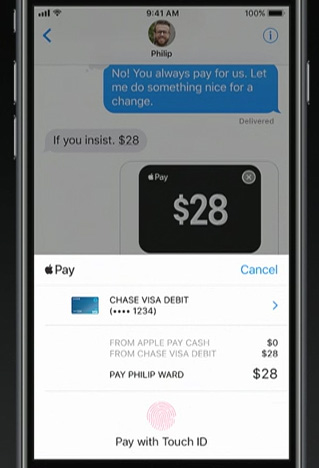
Siri becomes more human (and more useful)
Meanwhile, Siri is getting a few updates. For one, the voice has improved using machine learning to sound a bit more human (we recognize the irony of that sentence). It can also now translate phrases into different languages, though that feature is still in beta.
One other tweak is that Siri will now learn from your usage patterns in apps like Safari, News, Mail, Messages and others to deliver more personalized search results. According to Apple:
…as Siri learns topics or places a user is interested in while browsing Safari, they will be suggested when typing in Mail, Messages and other apps.
New Lockscreen, Notification Center, and Control center
One big visual change is that Apple is now unifying the lock screen and notification center. Scrolling down from the top of the screen will bring up your lock screen, but you can then swipe up to access your full list of notifications. That seems like an unnecessary extra step, but I suppose it’s a little cleaner.
Then there’s the new Control Center, AKA the quick settings panel when you swipe up from the bottom of your screen. All your settings now live in a single pane.
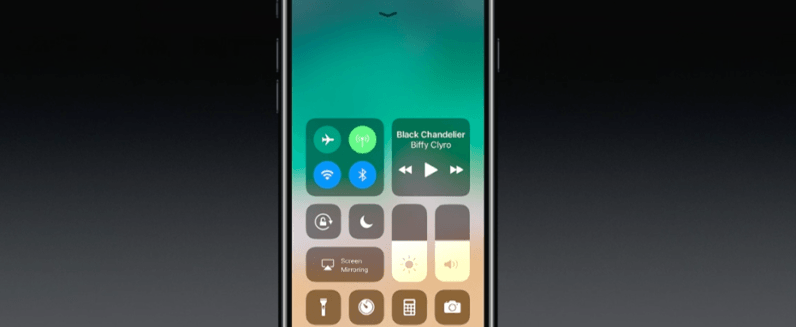
Photos and Videos
Photos and videos are receiving a variety of updates. I’ll bullet them for the sake of efficiency:
- Live photos now allow you to choose the best frame to use as the featured still.
- Apple can now create seamless live photo loops using machine learning.
- You can also use new machine learning tools to create long exposures without the need for a complicated tripod setup.
- Videos now use HEVC compression instead of H.264, for “up to 2 times” greater compression. Images are using a new technology called HEIF to reduce file size on the iPhone 7.
- Photos using the Portrait mode blur effect can now use optical image stabilization, flash, and HDR, making it more useful in various lighting conditions.
Apple Maps gets smarter
In order to make Apple Maps a solid alternative to the competition, Apple is adding a few features users have been requesting for some time. Most notably, perhaps, Apple is adding mall and airport maps, including detailed floor plans and directories. At airports, you can easily see how to get to security locations.
Meanwhile, navigation is finally adding lane guidance to help you be prepared for your next turn. And there’s now an on-screen speed limit indicator to keep you safe (though you will probably ignore it anyway).
One feature that can help you stay safer is a new ‘Do Not Disturb While Driving’ tool. It’s pretty much what it sounds like: It blocks incoming notifications and actually turns off your screen. You can tap on your display to turn it back on, and configure automated responses to let friends know you’re driving. That said, senders have the option to set a message as ‘urgent’ to make sure it gets through.

Better yet, the feature can automatically detect when you’re in a car by analyzing Bluetooth, location, and WiFi data.
The App Store gets a fresh new look
Apple is also completely redesigning the App Store for the first time since it launched. The new UI starts you off in a ‘Today’ tab that makes it easier to discover new apps (there are also dedicated tabs for games, apps and updates) . Meanwhile product pages for individual apps have been refined to highlight the most important details, and can now localize videos and screenshots to different regions.

iOS gets a proper file management app
One of the biggest pieces of news arrived shortly before the event: iOS finally has an honest-to-goodness Files app. Previously, you would need to jailbreak your iPhone if you wanted any sort of proper file management.
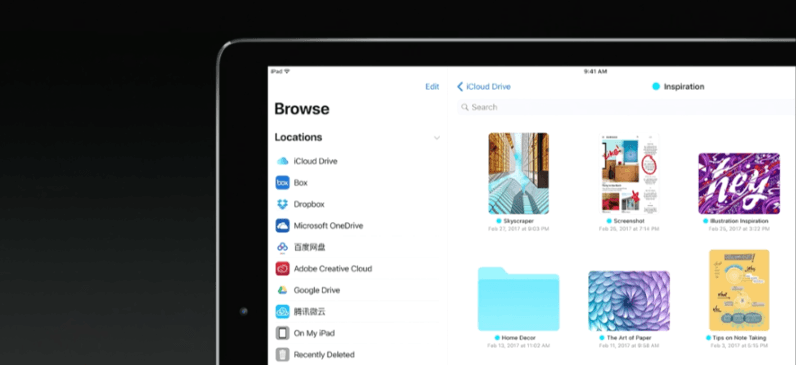
The app works as you’d expect , allowing you to access nested folders, recent files, search, and your choice of grid or list views. It’s also integrated with cloud services like iCloud, Google Drive, Box, and DropBox.
The iPad becomes a lot more like a MacBook
iPad users are getting a few nifty extras. Most notably, Apple’s Dock at the bottom of your screen is finally becoming useful – and a lot more like macOS. You can now include as many apps as you’d like in the Dock, and access it within any app by swiping from the bottom of your screen. It even uses AI to predict which apps you want to open next.
Moreover, you can finally drag and drop in iOS. You can drag an app from the Dock to the side of your screen to open it in slide-over mode. You can then drag and drop text and content in between apps.
People who try to get real work done on an iPad will also appreciate that the recent apps view now conserves your various split-screen workspaces. That means you can switch between apps and still maintain your multi-tasking setups.
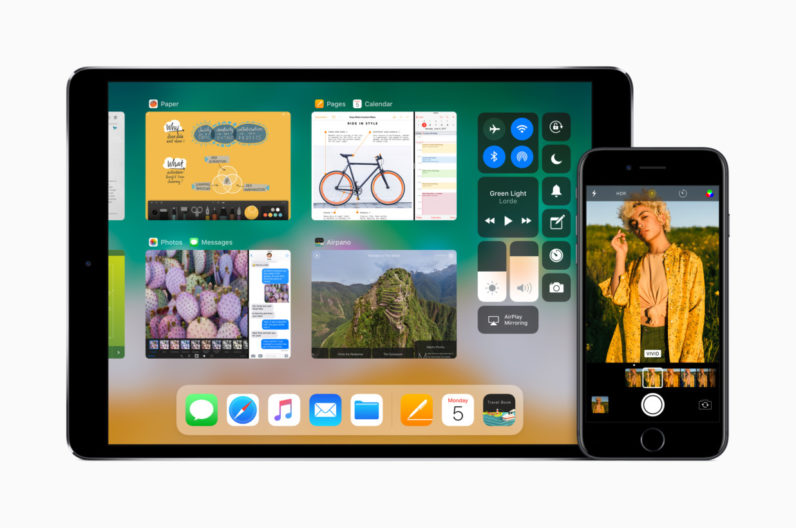
Meanwhile, Apple has improved support for the Apple Pencil, taking a page from Microsoft’s Surface and adding annotation features to PDFs, Notes and the Mail app. You can even start drawing instantly by tapping the Apple Pencil on the display right from your lock screen.
Apple is finally paying attention to AR
Pretty much every major tech company has invested in AR or VR, which made Apple the conspicuous omission. That’s no longer the case: Apple today introduced ARKit to make it easy for developers to integrate AR experiences to iOS devices using the built-in camera and sensors.
Listening to FLAC files just got much easier
FLAC is one of the most popular audio formats among audiophiles, and iOS 11 lets Apple’s devices play the filetype natively. You could previously use third party apps to do so, but a native solution is always appreciated.
QR Codes become cool again
The camera app now comes with a built-in QR code reader. Just point the camera at a QR code and you’ll see a pop-up toast with the information or link contained in the code. I wouldn’t be surprised to see a small resurgence in QR codes over the next few years.
Edit your screenshots
Another handy feature is the ability to animate and edit screenshots.
Once you grab a screenshot, you’ll have the option to edit the image before saving it. Among other things, the new functionality lets you edit out undesired areas in your screenshots or add various visual markers for improved visibility. Check it out in action:
Play animated GIFs
For many netizens, GIFs are a way of life, but you previously had to rely on third party apps to play them back on an iPhone. Fret no more, as the Photos app now natively supports everyone favorite outdated animated image format.
Of course, you have live photos, but who actually uses those?
Capture your screen
Apple made tech reporters’ lives much easier with a new screen capture tool, which is exactly what it sounds like. Rather than just taking screenshots, you can now record video of what you’re doing on your iPhone.
The feature is dead simple to activate – simply enable the recording button in the Control Center settings, and then tap the big red circle from within the panel.
iOS 11 is available in public beta form now, and will launch widely sometime in the fall.
Get the TNW newsletter
Get the most important tech news in your inbox each week.





